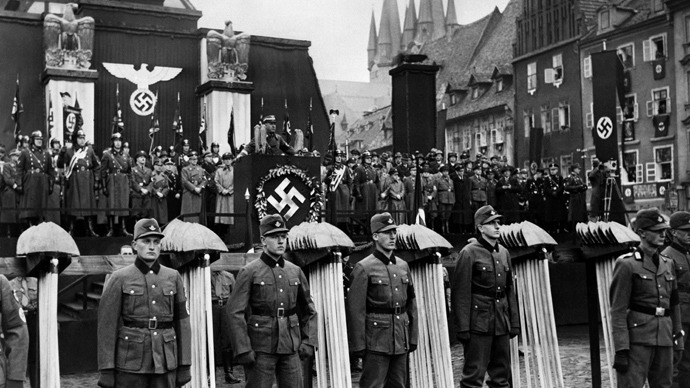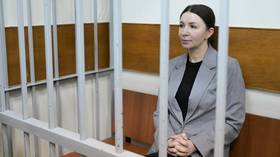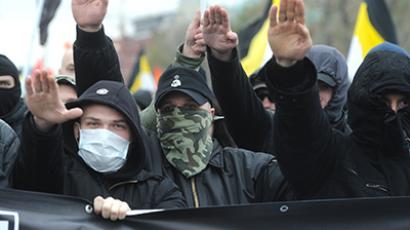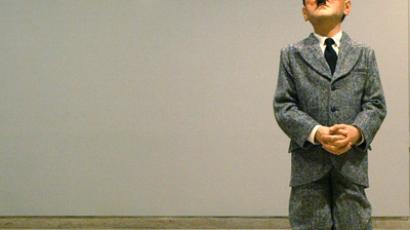‘Hitler wasn’t all bad’, 42% of Austrians say

Over 40 per cent of Austrians believe the Hitler era wasn’t ‘all bad’, according to the latest poll conducted by the Linz Market Institute.
The survey was carried out ahead of the 75th anniversary of the
country’s annexation by the Nazi Germany, the Anschluss, and
included 502 people.
Fifty-seven per cent of respondents believed that "there was
nothing positive about the Hitler era".
However, 61 per cent of respondents indicated that they wanted a
"strong leader" at the head of Austria.
That was in fact more than in previous polls, the newspaper Der
Standard reported. A similar survey in 2008 found just a fifth of
Austrians could imagine having "a strong leader who does not
have to worry about a parliament or elections."
Also, 54 per cent – most of them young and well-educated - were
of the opinion that if there was no legislation prohibiting the
neo-Nazi parties, they would succeed in elections.
Older participants in the survey strictly opposed the idea,
which, according to historians, is logical.
"It's a normal process that topics are no longer considered
hot after two or three generations," Oliver Rathkolb at the
University of Vienna told Der Standard.
Finally, 61 per cent indicated that they thought the country’s
Nazi past had been adequately dealt with, while 39 per cent
disagreed with that statement.
The opinions remain similarly divided when it comes to the
compensation of Nazi victims. 57 per cent of respondents thought
that "the victims of this injustice or their descendants have
been adequately compensated", whereas 42 per cent believed that
wasn’t the case.
On March 12, 1938, Hitler’s troops entered Austria, and were
welcomed by many who supported his ideology at the time. In the
latest poll, 53 per cent thought the Anschluss was voluntary and 46
per cent saw Austria as a victim of the unification.
As for the present political situation in the country,
right-wing nationalist parties have often triumphed in Austria,
even since World War II. In January, the leader of Vienna’s Jewish
Community said the number of anti-Semitic incidents reported to his
office had doubled in the previous year.
The Simon Wiesenthal Center regularly grades Austria among its
lowest-scoring countries in terms of prosecuting Nazi war
criminals.















